DL-Adrenalin
- CAS NO.:329-65-7
- Empirical Formula: C9H13NO3
- Molecular Weight: 183.2
- MDL number: MFCD00063027
- EINECS: 206-347-6
- SAFETY DATA SHEET (SDS)
- Update Date: 2024-12-18 14:07:02
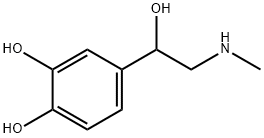
What is DL-Adrenalin?
Absorption
To refer to the pharmacokinetic data of L-epinephrine, refer to the drug entry for Epinephrine.
Toxicity
Oral LD50 of racepinephrine hydrochloride in mouse is 90 mg/kg .
Overdosage of epinephrine may cause extremely elevated arterial pressure, which may further lead to cerebrovascular hemorrhage, particularly in elderly patients. Peripheral vascular constriction in conjunction with cardiac stimulation may produce pulmonary oedema. Treatment consists of rapidly acting vasodilators or alpha-adrenergic blocking drugs and/or respiratory support. Transient bradycardia followed by tachycardia may also be observed, and may be accompanied by potentially fatal cardiac arrhythmias. remature ventricular contractions may appear within one minute after injection and may be followed by multifocal ventricular tachycardia (prefibrillation rhythm). Subsidence of the ventricular effects may be followed by atrial tachycardia and occasionally by atrioventricular block. In case of arrhythmias, treatment should involve administration of a beta- adrenergic blocking drug such as propranolol. Overdosage may also produce extreme pallor and coldness of the skin, metabolic acidosis, and kidney failure, which should each be treated with suitable corrective measures .
Chemical properties
Solid
The Uses of DL-Adrenalin
DL-Adrenaline is a hormone and a neurotransmitter secreted by the medulla of the adrenal glands. In medicine DL-Adrenaline is used chiefly as a stimulant in cardiac arrest, as a vasoconstrictor in shock, and as a bronchodilator and antispasmodic in bronch
The Uses of DL-Adrenalin
Endogenous catcholamine with combined α-and β-agonist activity. Principal sympathomimetic hormone produced by the adrenal medulla. Bronchodilator; cardiostimulant; mydriatic; antiglaucoma.
The Uses of DL-Adrenalin
A hormone and neurotransmitter
Background
Racepinephrine is a racemic mixture consisting of d-Epinephrine and l-Epinephrine enantiomers. Epinephrine is a non-selective α- and β-adrenergic receptor agonist. It is a bronchodilator used in the temporary relief of mild symptoms of intermittent asthma including wheezing, tightness of chest and shortness of breath. It is an active ingredient in oral inhalation over-the-counter products as racepinephrine hydrochloride.
Indications
Indicated for temporary relief of mild symptoms of intermittent asthma.
What are the applications of Application
(±)-Epinephrine is an adrenoceptor agonist
Definition
ChEBI: A catecholamine in which the aminoethyl side-chain is hydroxy-substituted at C-1 and methylated on nitrogen.
brand name
Vaponefrin (Fisons).
General Description
Odorless light brown or nearly white crystals.
Air & Water Reactions
Slightly water soluble .
Reactivity Profile
Light sensitive. Incompatible with heat, air, iron salts, and alkalis. . An aminoalcohol. Amines are chemical bases. They neutralize acids to form salts plus water. These acid-base reactions are exothermic. The amount of heat that is evolved per mole of amine in a neutralization is largely independent of the strength of the amine as a base. Amines may be incompatible with isocyanates, halogenated organics, peroxides, phenols (acidic), epoxides, anhydrides, and acid halides. Flammable gaseous hydrogen is generated by amines in combination with strong reducing agents, such as hydrides. Incompatible with heat, air, iron salts, and alkalis. .
Health Hazard
SYMPTOMS: Pallor, tremor, anxiety, nervousness, rapid, forceful pulse, rise in blood pressure and temperature, rapid breathing, dilation of the pupils.
Fire Hazard
Flash point data for DL-Adrenalin are not available, however, DL-Adrenalin is probably combustible.
Pharmacokinetics
Epinephrine acts on α- and β-adrenergic receptors. When given subcutaneously or intramuscularly, epinephrine has a rapid onset and short duration of action . Epinephrine induces bronchial smooth muscle relaxation to relieve respiratory distress in asthma. In a clinical trial of paediatric patients with bronchiolitis, administration of aerosolized racemic epinephrine via inhalation resulted in improved clinical symptoms such as wheezing and retractions . The clinical efficacy of racemic epinephrine was comparable to that of salbutamol or albuterol, which are commonly used bronchodilators .
Metabolism
To refer to the pharmacokinetic data of L-epinephrine, refer to the drug entry for Epinephrine.
Properties of DL-Adrenalin
| Melting point: | 197 °C (dec.)(lit.) |
| Boiling point: | 316.88°C (rough estimate) |
| alpha | -0.5~+0.5°(D/20)(c=1,0.1mol/l HCl) |
| Density | 1.1967 (rough estimate) |
| refractive index | 1.4760 (estimate) |
| storage temp. | 2-8°C |
| solubility | 0.1 M HCL : 2.5 mg/mL (13.65 mM; ultrasonic and adjust pH to 1 with HCl)DMSO : 1 mg/mL (5.46 mM; ultrasonic and adjust pH to 7 with HCl)Ethanol : < 1 mg/mL (insoluble)H2O : < 0.1 mg/mL (insoluble) |
| form | Powder |
| pka | 9.60±0.10(Predicted) |
| Water Solubility | Sparingly soluble |
| Sensitive | Light Sensitive |
| Merck | 14,3619 |
| CAS DataBase Reference | 329-65-7(CAS DataBase Reference) |
| EPA Substance Registry System | 4-[1-Hydroxy-2-(methylamino)ethyl]-1,2-benzenediol (329-65-7) |
Safety information for DL-Adrenalin
| Signal word | Warning |
| Pictogram(s) |
 Skull and Crossbones Acute Toxicity GHS06 |
| GHS Hazard Statements |
H311:Acute toxicity,dermal H315:Skin corrosion/irritation H319:Serious eye damage/eye irritation H335:Specific target organ toxicity, single exposure;Respiratory tract irritation |
| Precautionary Statement Codes |
P261:Avoid breathing dust/fume/gas/mist/vapours/spray. P280:Wear protective gloves/protective clothing/eye protection/face protection. P304+P340:IF INHALED: Remove victim to fresh air and Keep at rest in a position comfortable for breathing. P305+P351+P338:IF IN EYES: Rinse cautiously with water for several minutes. Remove contact lenses, if present and easy to do. Continuerinsing. P405:Store locked up. |
Computed Descriptors for DL-Adrenalin
New Products
(S)-3-Aminobutanenitrile hydrochloride 4-Methylphenylacetic acid N-Boc-D-alaninol N-BOC-D/L-ALANINOL Tert-butyl bis(2-chloroethyl)carbamate 3-Morpholino-1-(4-nitrophenyl)-5,6-dihydropyridin- 2(1H)-one Furan-2,5-Dicarboxylic Acid Tropic acid 1-Bromo-3,5-Di-Tert-Butylbenzene S-2-CHLORO PROPIONIC ACID ETHYL ISOCYANOACETATE 2-Bromo-1,3-Bis(Dimethylamino)Trimethinium Hexafluorophosphate 4-IODO BENZOIC ACID 3-NITRO-2-METHYL ANILINE 1-(2,4-DICHLOROPHENYL) ETHANAMINE (2-Hydroxyphenyl)acetonitrile 4-Bromopyrazole 2-(Cyanocyclohexyl)acetic acid 4-methoxy-3,5-dinitropyridine 1-(4-(aminomethyl)benzyl)urea hydrochloride 2-aminopropyl benzoate hydrochloride diethyl 2-(2-((tertbutoxycarbonyl)amino) ethyl)malonate tert-butyl 4- (ureidomethyl)benzylcarbamate Ethyl-2-chloro((4-methoxyphenyl)hydrazono)acetateRelated products of tetrahydrofuran

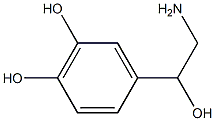


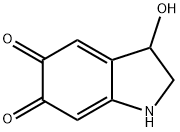
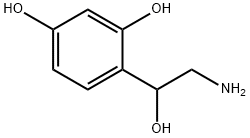

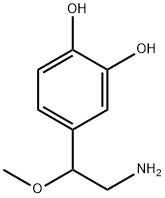
You may like
-
 DL-Epinephrine >98% (HPLC) CAS 329-65-7View Details
DL-Epinephrine >98% (HPLC) CAS 329-65-7View Details
329-65-7 -
 DL-Adrenaline 95% CAS 329-65-7View Details
DL-Adrenaline 95% CAS 329-65-7View Details
329-65-7 -
 1975-50-4 98%View Details
1975-50-4 98%View Details
1975-50-4 -
 2-HYDROXY BENZYL ALCOHOL 98%View Details
2-HYDROXY BENZYL ALCOHOL 98%View Details
90-01-7 -
 2-Chloro-1,3-Bis(Dimethylamino)Trimethinium Hexafluorophosphate 221615-75-4 98%View Details
2-Chloro-1,3-Bis(Dimethylamino)Trimethinium Hexafluorophosphate 221615-75-4 98%View Details
221615-75-4 -
 61397-56-6 CIS BROMO BENZOATE 98%View Details
61397-56-6 CIS BROMO BENZOATE 98%View Details
61397-56-6 -
 14714-50-2 (2-Hydroxyphenyl)acetonitrile 98+View Details
14714-50-2 (2-Hydroxyphenyl)acetonitrile 98+View Details
14714-50-2 -
 118753-70-1 98+View Details
118753-70-1 98+View Details
118753-70-1